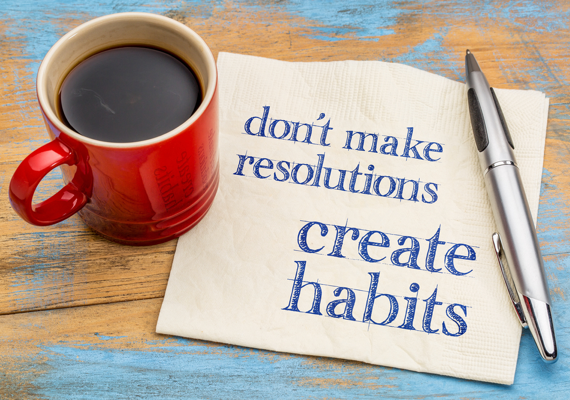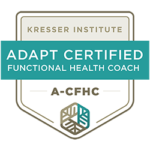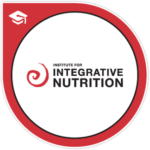This first post is meant to introduce what I think may be the most important first step for all of us. I also have in my files many other health and wellness-related topics that I think we need to educate ourselves on: food, stress management, hydration, exercise, and social connection, for starters.
But I’d like you to consider that what we need to do at the outset is to understand how we might actually be able to make changes in our behavior more easily, by simply understanding something about how our brains work.
We all think we understand ourselves quite well, but I’d like to suggest that we have been blinded by our own experiences, while we have been duped to remain overweight, or stressed, or inactive or lonely. Many of us seem to be under some false impressions, although these have been so ingrained in us over the years that we may end up becoming quite surprised to learn that they are not true.
We will discover that holding on to these falsehoods will not help us at all as we embark on our journeys to live longer and better.
Let’s start with weight loss, which is a pretty common goal these days1According to healthypeople.gov, in 2013–2016, the rate of obesity was 38.6% among adults aged 20 years and over. When I ask my clients what challenges they have faced when trying to lose weight, the most common answers have been:
- “I have no willpower.”
- “I’m addicted to sweets.”
- “I do well for a while, but then the next thing I know, I’m grabbing for the potato chips.”
- “I can’t control my cravings for something to munch on in the evenings after dinner.”
- “I lost weight pretty easily on the X Diet, but I gained it all back because I couldn’t stick with it.”
- “I can’t stop myself from overeating. I see something yummy, and I can’t stop myself from eating it, even if I’ve just finished a big meal!”
Maybe you can relate to some of these confessions…?
Did you notice that each client has blamed him or herself for not having been able to lose weight?
Here is the first untruth: that it is our own fault. There are two sources for this untruth:
- The first is that we aren’t recognizing the poor quality of most of the food that is available for us. When you go to the grocery store, or possibly look at the contents of your kitchen pantry, you will see food that we are not genetically wired to digest.
- When we look at a natural human diet through the lens of biochemistry and physiology, we arrive at the same conclusion: our diet should consist of a combination of organ meat, meat, fish, shellfish, eggs, fresh vegetables and fruits, nuts, seeds, and starchy plants.2https://chriskresser.com/what-is-the-optimal-human-diet/
- You may want to look closely at a list of the ingredients of some of your favorites. I’d be curious what you think, when you read those! Please stay tuned for another blog post on the quality of all of the tempting food that gets in the way of our plans to lose some weight.
For now, though, let’s get back to the issue of our own willpower and habit-formation.
- And the second untruth: It’s not about our lack of willpower. It’s about how our brains are wired.
Some very smart scientists3 Lally P, Wardle J, Gardner B. Experiences of habit formation: a qualitative study. Psychol Health Med. 2011;16(4):484–489. have figured out exactly how we acquire new habits4 Clear, James. Atomic Habits, 2018. New York: Random House, 2018. as well as how we break undesirable ones5 Duhigg, Charles. The Power Of Habit: Why We Do What We Do In Life And Business. New York : Random House, 2012. . (You may be interested to learn that all corporations that sell food and personal products are acutely aware of this science, and they brazenly use it to sell millions of dollars of their products to us, while we innocently think that we are making conscious choices.)6 I hope that you enjoy the story of Target (the department store chain) in Duhigg’s illuminating book as much as I did. So what do these scientific discoveries have to do with our desire to lose weight?
Well, let’s have another look at our reasons for it being hard to lose weight. Instead of blaming ourselves, we should be blaming the fact that we aren’t 100% aware of how we form new habits. Once we become aware and understand the process, very few of the negative self-talk will be heard—we will have learned what to do at the times that we appear not to have any willpower.
Here’s a brief summary of what Charles Duhigg has described in The Power of Habits: In order to create a new habit, we need a cue, a routine, a reward and a craving that is being satisfied. Figuring these out is the secret to maintaining sustainable habits—those that last. Gone will be the days when we claim, “Quitting X is easy! I’ve done it hundreds of times!”
Here’s a brief illustration:
Problem: You’re trying to lose weight and can’t hold back from snacking in the evenings. Cue: Maybe it’s the TV (mindless snacking is common, when staring at that screen). Maybe it’s the “Having finished cleaning the kitchen, I deserve a reward” feeling. Maybe it’s boredom: “I have nothing else to do”. Maybe it’s the need to snack when you’re speaking to a relative on the phone. What might it be for you?
Solution:
Your new routine will be to do something else — instead of eating mindlessly.
The craving:
This is where we need to dive a little deeper. But it’s the key to our success! Think hard, now: What is it that you are looking for when you grab that bag of chips or bowl of nuts? It’s not hunger, clearly. I mean, you’ve already finished dinner, right?) Once we can identify what it is that we are seeking, the rest is downhill.
The routine:
Find something else that satisfies that same craving. Is it connection that we want? Is it a relief from boredom? Is it the need to do something instead of mindlessly watching a Netflix series? Whatever it is, that new behavior or feeling will be our new reward.
The reward:
This is key: What is your reason for wanting to lose weight? Is it to fit into clothes that have been hanging in your closet for ages? Is it to be able to look in the mirror and be content with the reflection? Is it to have more energy during the day? Is it to improve your health markers, like blood pressure or triglyceride levels? Is it to lower the inflammation on your body? What is your reason?
Once you have determined your reason, hold it close and remind yourself of it, as this process unfolds. It will be an anchor that will hold you fast to your new habits.
What to do next: Time for some experimenting. Try out each theory and see which one is true for you.
The proof that you’ve arrived: Your new reward isn’t obvious any more. You simply get enjoyment from your new routine. Habits require zero willpower.
Congratulations! You have developed a new habit.
Stay tuned for more posts on the topic of habit change and how to handle it sustainably. Be the first to find out about a new post by signing up here.
References:
- 1According to healthypeople.gov, in 2013–2016, the rate of obesity was 38.6% among adults aged 20 years and over.
- 2
- 3
- 4
- 5
- 6I hope that you enjoy the story of Target (the department store chain) in Duhigg’s illuminating book as much as I did.
- 1According to healthypeople.gov, in 2013–2016, the rate of obesity was 38.6% among adults aged 20 years and over.
- 2
- 3
- 4
- 5
- 6I hope that you enjoy the story of Target (the department store chain) in Duhigg’s illuminating book as much as I did.




